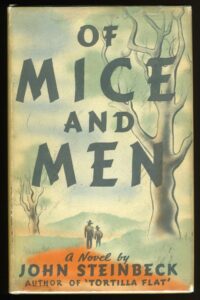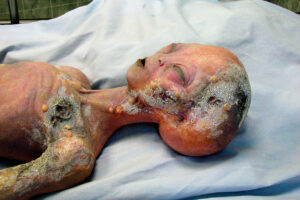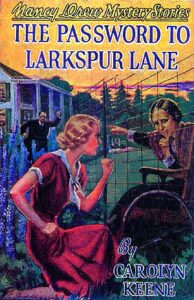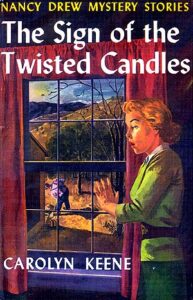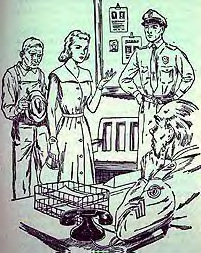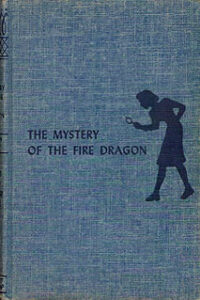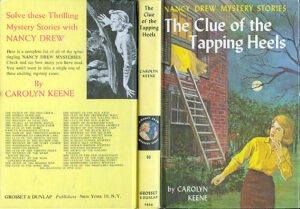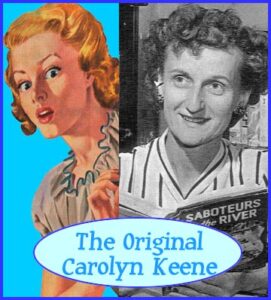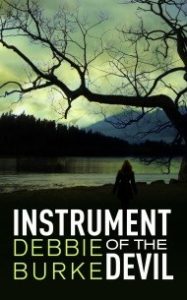Gentle Readers, We’re in dusty New Mexico today, at a delightfully grisly scene. Let’s go!
(Coyotes)
Three days is a long time to be dead, especially out under the intense New Mexico sun. The bodies were stacked like cord wood; if they were wood, I’d wager there was a good half a cord there. New Englanders know these things.
The smell was overwhelming; the chorus of a few thousand flies filled my ears and the half-cord sized pile shimmered with writhing maggots. I gagged but forced myself to look, to see the coyotes’ empty yellow eyes.
There were at least fifteen of them, maybe more, it was hard to be sure. Blocks of wood with a date scrawled in black marker—October 20th, three days ago—had been placed into the animals’ mouths, to what end I couldn’t imagine. Temporary markers for temporary remains, I guessed. Somehow, though, it didn’t feel like those small sections of two-by-four pressure treated wood had been placed there with any measure of respect.
The coyotes’ once sumptuous red-gray coats were matted, their fur dulled by the ever-present dust that blows across the desert, by the lack of lifeblood for nourishment. Their bodies had already begun to shrink. To flatten, sinking back into the plains where they had made their homes, where they had hunted their prey. Where they’d eaten berries and birthed their young and filled the night with their songs. No one would come to dispose of their bodies; the BLM land would simply reclaim them.
I looked away then. I didn’t understand it but, when I’d risen this morning, I couldn’t get it out of my head. I’d needed to see for myself. “Fucking hell,” I whispered and wished I had a cigarette, but they were a quarter of a mile away, in my unit—dubbed the Eunuch by my friend Ben, since my unmarked Charger “has no balls and protects divine royalty.”
Ben has a little bit of a crush on me.
“They think of it as a sport,” he’d sputtered the night before, his youthful cheeks red with righteous indignation, his prominent nose red from the beers. Ben’s half Jewish and has the shnoz to prove it. He’s also very tall and thin and his tagline, when meeting new people is, “Ben Short. All my life.”
______
Dang, there’s so much to love about this passage. I’m wild for it. We’re BANG, right into the scene of the crime, with a smart narrator showing us around. The slaughtered animals tell us this isn’t going to be a gentle story, and the grisly detail is carefully observed. Such an opening won’t be for the faint of heart, but this will find plenty of fans. And there’s humor here to leaven it. I don’t have much more than praise to offer, so I’m going to give it a line edit.
______
“Three days is a long time to be dead, especially out under the intense New Mexico sun. The bodies were stacked like cord wood; if they were wood, I’d wager there was a good half a cord there. New Englanders know these things.”
Terrific opening line. Don’t change a thing. Except maybe get rid of “out.”
Not identifying the bodies as belonging to coyotes is misleading. I assumed they were human, and felt a little confused and dopey when I learned they weren’t. Whole different story.
__Three days is a long time to be dead, especially out under the intense New Mexico sun. The coyotes’ stiffened bodies were stacked as high as a half cord of firewood so that they appeared to be one hideous creature with way too many heads. Against my better judgement, I moved a few steps closer.__
(Okay. The “so that they appeared to be one hideous creature with way too many heads” may sound like too much, but you need something to carry forth some rhythm into the middle of the paragraph.)
Lose “New Englanders know these things.” Keep us in New Mexico for now. You’re in it for the long haul, and the confident voice needs no justification pertaining to knowledge of cords of wood.
“The smell was overwhelming; the chorus of a few thousand flies filled my ears and the half-cord sized pile shimmered with writhing maggots. I gagged but forced myself to look, to see the coyotes’ empty yellow eyes.”
I want to know more than that the smell was “overwhelming.” What does that mean? That it’s so strong that the narrator staggers and might faint? That it smells like rotting hamburger wrapped in the socks of a million sweaty feet? Be specific. Give us a sentence.
Same deal with the flies and their sound.
__A thousand hovering flies, their electric hum vibrating in my ears, swept and dove at the pile, which already shimmered with patches of wriggling maggots. Gagging, I forced myself to look into the coyotes’ empty yellow eyes.__
“There were at least fifteen of them, maybe more, it was hard to be sure. Blocks of wood with a date scrawled in black marker—October 20th, three days ago—had been placed into the animals’ mouths, to what end I couldn’t imagine. Temporary markers for temporary remains, I guessed. Somehow, though, it didn’t feel like those small sections of two-by-four pressure treated wood had been placed there with any measure of respect.”
You’ve got an amazing visual and powerful commentary by the narrator here. Remember to keep the voice active and confident.
__I counted fifteen heads, but there may have been more that I couldn’t see. A block of wood scrawled with a date of 10/20–three days earlier–jutted from each animal’s mouth. Temporary markers for temporary remains, I guessed. Somehow, though, it didn’t feel like those small sections of two-by-four pressure treated wood had been placed there with any measure of respect.__
“The coyotes’ once sumptuous red-gray coats were matted, their fur dulled by the ever-present dust that blows across the desert, by the lack of lifeblood for nourishment. Their bodies had already begun to shrink. To flatten, sinking back into the plains where they had made their homes, where they had hunted their prey. Where they’d eaten berries and birthed their young and filled the night with their songs. No one would come to dispose of their bodies; the BLM land would simply reclaim them.”
“Matted.” Were they bloody? Were the coyotes shocked to death, or shot? Attacked by vampires/vampire bats?! The “lack of lifeblood” implies they’ve lost blood.
Call me an idiot, but I wondered at the (BLM) Black Lives Matter land reference. Further investigation suggests that it refers to Bureau of Land Management land. Adding the BLM reference dulls the poignancy of the last line. Slip it in a tad later.
__The coyotes’ once sumptuous red-gray coats were matted, their fur dulled by the ever-present dust that blows across the desert, by the lack of lifeblood for nourishment. Their bodies had already begun to shrink and flatten, sinking back into the plains where they had made their homes, where they had hunted their prey. Where they’d eaten berries and birthed their young, and filled the night with their songs. No one would come to dispose of their bodies. The land would simply reclaim them.__
“I looked away then. I didn’t understand it but, when I’d risen this morning, I couldn’t get it out of my head. I’d needed to see for myself. “Fucking hell,” I whispered and wished I had a cigarette, but they were a quarter of a mile away, in my unit—dubbed the Eunuch by my friend Ben, since my unmarked Charger ‘has no balls and protects divine royalty.'”
“I didn’t understand it but, when I’d risen this morning, I couldn’t get it out of my head. I’d needed to see for myself.”
I don’t get this at all. Are we not on the immediate scene? Had the narrator been told about the coyotes sometime earlier, and that’s why they’re now at the scene? Very confusing. If that’s the case, make that super clear and don’t drop it randomly in here–tell us at the end of the scene when they’re driving away or something. “The captain was going to be pissed as hell that I’d gone by the scene, but I’d been up all night thinking about it after Ben told me. I had to see it for myself.”
__I looked away then. “Fucking hell,” I whispered, and wished I had a cigarette. But they were a quarter of a mile away, in my unit—dubbed the Eunuch by my friend Ben, since my unmarked Charger “has no balls and protects divine royalty.”__
“Ben has a little bit of a crush on me.”
I must ask. Does our narrator identify as a man, woman, as transgender, or something else? Please make this clear, and sooner. It will matter to many readers because they’ll want to get the picture in their head.
“Ben is a bit of a comedian. He also has a crush on me.”
“They think of it as a sport,” he’d sputtered the night before, his youthful cheeks red with righteous indignation, his prominent nose red from the beers. Ben’s half Jewish and has the shnoz to prove it. He’s also very tall and thin and his tagline, when meeting new people is, “Ben Short. All my life.”
Okay. Now I see that Ben is the one who told her about the coyotes the night before. Still, the implied timeline is confusing. There’s no need to go back and forth–just tell us straight out what the narrator is doing there and at whose behest. Earlier.
Who is “they?” Maybe he can refer to them as son-of-a-bitches or bastards, etc. If he doesn’t curse, he could say “Jerks.”
The line about Ben joking about his name is cute. But given the intense scene, I think it’s one joke too many on top of the grisly coyote situation.
“Ben’s half Jewish and has the shnoz to prove it.” Really? This sounds like a line from a 1940s noir. It’s a stereotype that some people might find offensive. Use at your peril.
__“Bastards think of it as a sport,” he’d sputtered the night before, all six feet of him towering unsteadily over me. His youthful cheeks were red with righteous indignation, his prominent nose red from the beers.__
____
Again, I think this is a terrific beginning, and can be near-perfect with a small amount of thoughtfulness and editing.
What do you all think? Tell us your advice for our Brave Author!


